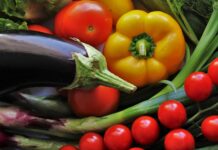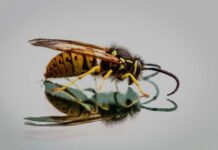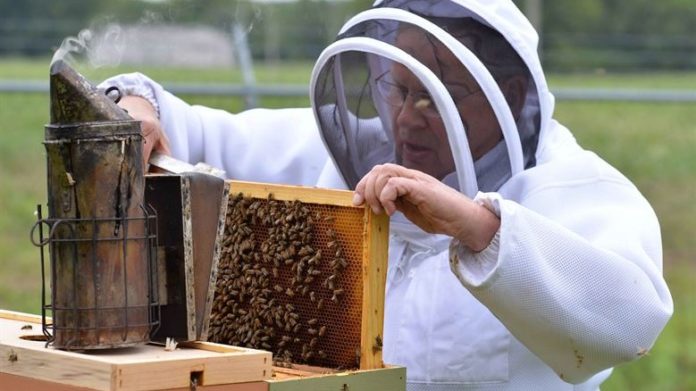Probiotics are full of live microbes that are good for health. Often eaten as part of fermented foods or taken as a supplement, they boost gastrointestinal health in humans. But their potential uses extend beyond people, and Western University researchers have tested whether they could save honey bees from the destructive American Foulbrood (AFB) pathogen.
“Probiotics aren’t just for humans,” said Professor Gregor Reid in the university’s press release. “Our idea was that if you could use beneficial microbes to stimulate the immune response or attack the pathogens that are infecting the hives, then maybe we can help save the bees.”
AFB is a bacterial pathogen caused by P.larvae, and it wreaks havoc on honey bee colonies. Hives from the strongest to the weakest can be affected, and entire colonies can be wiped out. Infection is characterized by a foul smell often compared to rotting fish, and there is no known cure.
Honey bees are critical players in agriculture. They are the most important pollinators of our crops, with some estimates suggesting that up to a third of our daily food supply relies on them. The bees, and subsequently humans, are under significant threat by forces like climate change, habitat destruction, pesticides, and pathogens like AFB.
“Bee colonies are really interesting little microcosms of biology,” said co-author Graham Thompson in the press release. “There are lots of individual bees, but they are all genetically related and they are living in a close confined space. They are all very susceptible to contagious disease and they are demographically disposed to outbreaks.”
Previous work by the researchers demonstrated that pesticides can weaken the immune system of the bees, leaving them vulnerable to pathogens.
Accidental outbreak ends up showing potential of probiotics
For the new study, researchers set out to investigate whether general honeybee health would change if they supplemented them with a BioPatty; these nutrient-packed supplements are commonly used by bee farmers when food is scarce, and for this experiment, the BioPatties were additionally loaded with the probiotic lactobacilli.
Control-wise, they prepared separate colonies with BioPatties that were not loaded with probiotics and other colonies again with no BioPatty whatsoever.
Things did not go exactly according to plan: in the course of their experiments, there was an accidental outbreak of AFB in the team’s apiaries, but this turned out to be a happy accident. In the hives that had probiotic BioPatties supporting them, the pathogen load was reduced by up to 99% and the bees survived in much greater numbers compared to both control groups.
What’s more, further exploration in the lab doubled down on the idea that the probiotic-enhanced bees were better protected against P. larvae. Researchers found that the probiotics increased the genetic expression of Defensin-1, an antimicrobial peptide that is crucial in the defence against a P. larvae infection.
Interestingly, the hives that fared the worst in the outbreak were the ones that received BioPatties without probiotics. The authors suggest this may be because the increased availability of food provided more favourable conditions for the pathogens to grow in. This is an important point for bee farmers as supplementing hives with additional food could be inadvertently providing pathogens with the boost they need.
Future research should explore whether AFB outbreaks arise through a microbiota-driven process similar to other bee diseases, according to the authors. Another area for investigation should be on the long-term effects of probiotics on healthy honey bee hives, they added.
Thompson concluded that the ultimate goal is to “add a viable, practical and available treatment alternative to chemicals and antibiotics that beekeepers can readily adopt into their bee-keeping habits to help prevent colony collapse.”




































